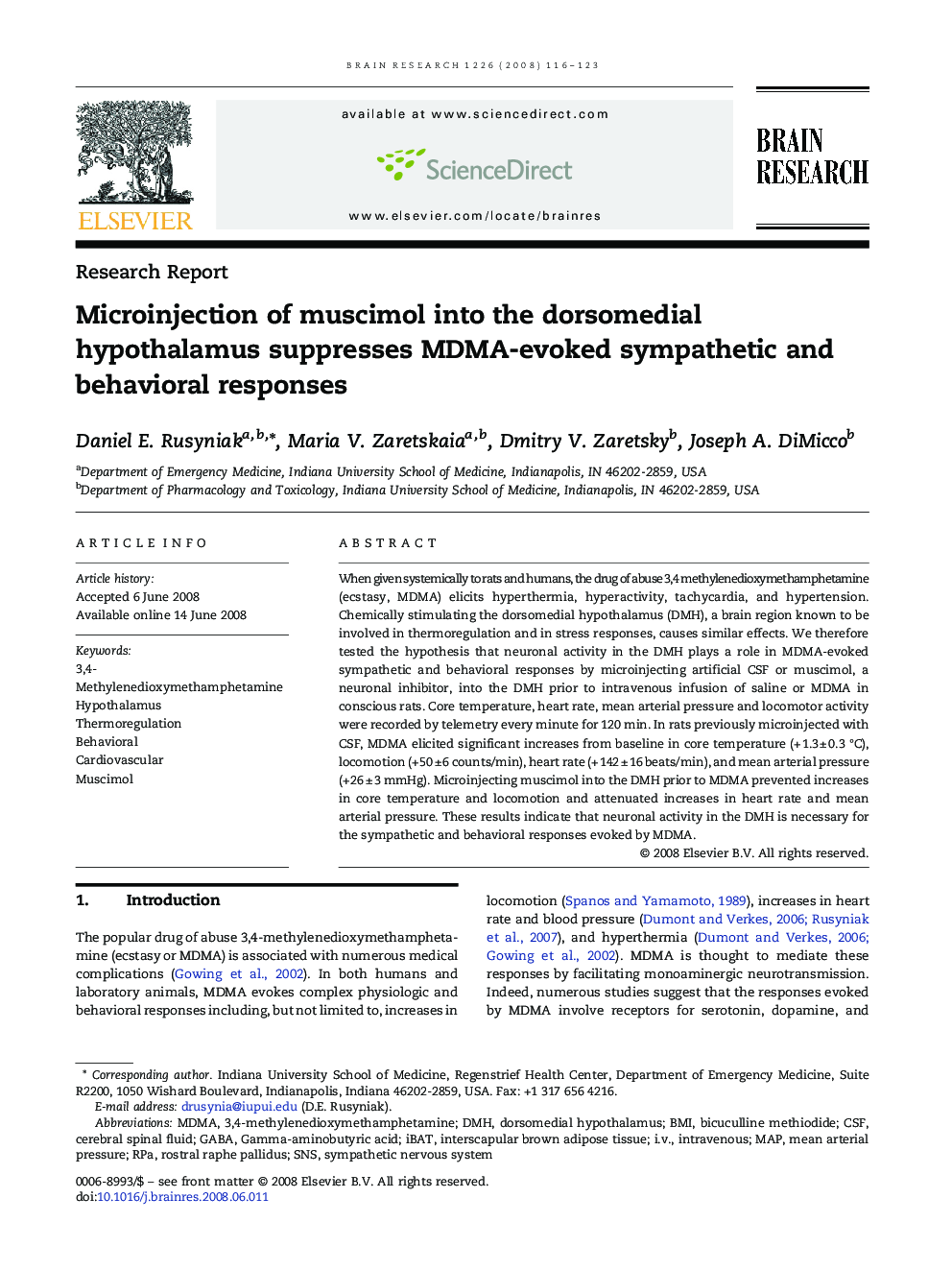| Article ID | Journal | Published Year | Pages | File Type |
|---|---|---|---|---|
| 4329397 | Brain Research | 2008 | 8 Pages |
When given systemically to rats and humans, the drug of abuse 3,4 methylenedioxymethamphetamine (ecstasy, MDMA) elicits hyperthermia, hyperactivity, tachycardia, and hypertension. Chemically stimulating the dorsomedial hypothalamus (DMH), a brain region known to be involved in thermoregulation and in stress responses, causes similar effects. We therefore tested the hypothesis that neuronal activity in the DMH plays a role in MDMA-evoked sympathetic and behavioral responses by microinjecting artificial CSF or muscimol, a neuronal inhibitor, into the DMH prior to intravenous infusion of saline or MDMA in conscious rats. Core temperature, heart rate, mean arterial pressure and locomotor activity were recorded by telemetry every minute for 120 min. In rats previously microinjected with CSF, MDMA elicited significant increases from baseline in core temperature (+ 1.3 ± 0.3 °C), locomotion (+ 50 ± 6 counts/min), heart rate (+ 142 ± 16 beats/min), and mean arterial pressure (+ 26 ± 3 mmHg). Microinjecting muscimol into the DMH prior to MDMA prevented increases in core temperature and locomotion and attenuated increases in heart rate and mean arterial pressure. These results indicate that neuronal activity in the DMH is necessary for the sympathetic and behavioral responses evoked by MDMA.
